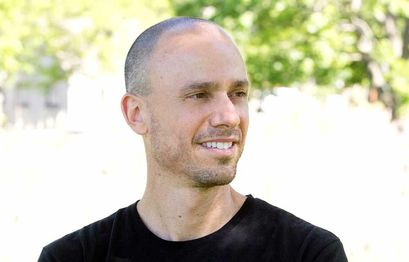While many involved in the alternative investment space repeat the mantra about democratizing investing, few truly incorporate those ideals into the platforms they create, says a CEO who has taken those extra steps.
Steven Dresner is the CEO of Dealflow.com, a company solving the problem of linking companies in search of capital with the investors most likely to invest in them.
Mr. Dresner is a featured speaker at FinFair 2015, which takes place in New York City on July 29. FinFair 2015 provides an opportunity for established Wall Street figures and developers of new technology to meet and discuss how the investment environment will look in the coming decades.
Mr. Dresner said DealFlow began to take shape after its predecessor was sold to The Street in 2013. DealFlow Media tracked and analyzed IPOs, APOs and other investment opportunities.
He began thinking about how to track those deals and how to organize them into some sort of directory. This was around the time the JOBS Act was born.
“It became obvious to track not only companies that had completed a raise but also those looking to raise,” Mr. Dresner said. “I liked the idea so much I dropped everything else I was doing to work on it.”
“I have never worked on anything that had such huge potential.”
Dealflow is an aggregated database of companies actively raising capital which also provides tools and analytics for people in the deal marketplace. Mr. Dresner describes it as a social marketplace product with some licensed aspects where people can pay for additional information.
Dealflow also tracks investors through the use of proprietary data and polling techniques that allow them to create and continually update an investor database.
Combine a database of existing deals with one containing those most interested in investing in deals, develop algorithms, and you have a matchmaking service connecting companies in need of capital to people looking to invest it.
Mr. Dresner says that while his vision for Dealflow is something entirely new and that comes with its own set of problems, those problems are solvable and he can work with that.
That is one reason why he’s not touching crowdfunding.
“So many are ‘rah rah’ over crowdfunding, but the problems are not solvable, there’s no guidance,” Mr. Dresner said. “There are too many things outside your control to create a proper platform.”
Conversely, Dealflow’s chosen milieu is a greenfield opportunity of solvable problems where few have ventured. Dealflow will not touch areas other companies are doing well, Mr. Dresner said, which still leaves plenty to work on.
“If a company has raised capital and filed a Form D, the finalized raise will go in the database,” Mr. Dresner said. “Those in the raising zone, that is fascinating data.”
There is no denying the zeal with which entrepreneurs are embracing the combination of the internet, data, technology and investing to create different types of platforms. It is like a chili cook-off.
The problem with many options is chefs are using the latest ingredient, one which does not make their entry any taste better. Many entries taste alike, which was ‘meh’ to begin with, leaving them without a blue ribbon.
“I have a different view than most,” Mr. Dresner said. “Half the platforms are in the general area of deal marketing, using the internet to get people to invest in startups. They’re all ‘rah rah democracy’.”
“Others are transacting online. Most are not working the way they say they are. Those are essentially electronic bulletin boards where they say a company has an offer.”
Such platforms provide little value because knowledgeable investors do not take the presented facts as gospel and invest solely on what they read there, Mr. Dresner explained.
“The biggest story is not providing access to data, but in turning that data into intelligence.”
Dealflow takes the information they receive and breaks it down into properties-based data related to product offerings, service area, management, and even hobbies of entrepreneurs and investors.
Like any relationship, the investing relationship begins with common ground, whether that be a shared desire to solve a problem or even a hobby both sides enjoy that allows them to get to know each other better.
“That is because the way people invest has not changed,” Mr. Dresner said. “Investing is a social activity. Show me people I respect.”
Technology and legislation have combined to create an opportunity where opportunities of all caliber are open to all. In the past, the best deals never went public because they were snatched up by those in the know.
And that is where the news is.
“A few years ago the good deals weren’t brokered,” Mr. Dresner said. “The only ones that were brokered were the crappiest deals.”
“The story in DealFlow is if you are a 30-year-old guy this is 100 percent how you will search for deals in the future.”
And that leaves traditional banks, who do not exactly have the reputation as early adopters, in trouble as this method becomes more commonplace, Mr. Dresner believes.
“People like Goldman Sachs are coming late to the party,” Mr. Dresner said. “Those who make lots of money tend to not be too novel in their thinking.”
In five years, banks will realize all types of companies will be marketing deals on the internet, not just startups, Mr. Dresner said.
“Huge billion-dollar deals are being done this way, and they’re coming from guys who grew up on the internet. This is how they find, research and buy stuff.”
“And deals are stuff to 30 year-olds.”










